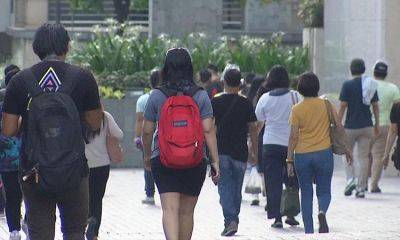Filipino teenage girls likely to be on track in school than boys — UN study
Metro Manila (CNN Philippines, October 12) — Filipino girls aged 16 are more likely to be on track with their schooling than boys, according to a study from the United Nations Population Fund (UNFPA).
The recent study on Filipino children also revealed that teenage boys are more likely to engage in risky behaviors such as smoking and drinking alcohol compared to teenage girls.
«At age 13 to 14, 7.7% of boys have tried smoking, compared to only 2.5% of girls,» it read. «Similarly, 21.8% of boys have tried drinking alcohol, compared to 12.8% of girls.»
According to researchers, the study also showed the unique challenges related to gender norms and stereotypes that could significantly impact the future of girls.
Data revealed that 2.6% of girls aged 15 to 16 have already experienced early pregnancy while 3% are cohabitating or living with their partners.
Girls also spend more time on household chores compared to boys.
Nanette Lee-Mayol, one of the study's researchers, said the study aims to know what factors contribute to girls losing their edge as they reach adulthood.
«We are hopeful that the study will generate insights that will help stakeholders provide solutions and enable women to realize their full potential,» she added.
UNFPA Country Representative Leila Joudane, meanwhile, said the study is a reminder of the importance of investing in the health, education, and well-being of adolescent girls.
The study tracked the development of Filipino children over 15 years old. It followed the same age group of 5,000 children from 2016 until the end of Sustainable Development Goals in 2030.
It was part of UNFPA's Phase III implementation of the Longitudinal Cohort Study on the Filipino Child in partnership with the Australian government, United Nations Children's Fund, National Economic and Development Authority and University of San Carlos-Office of Population Studies.







